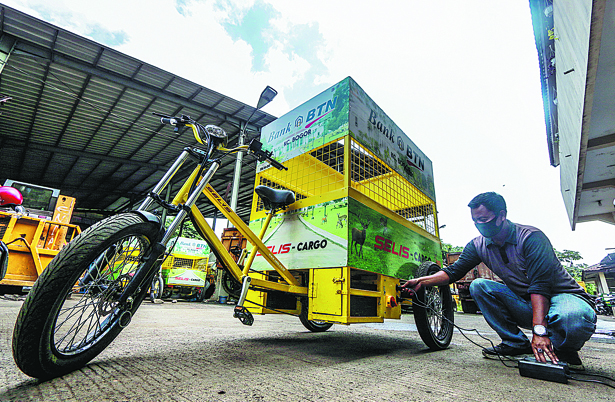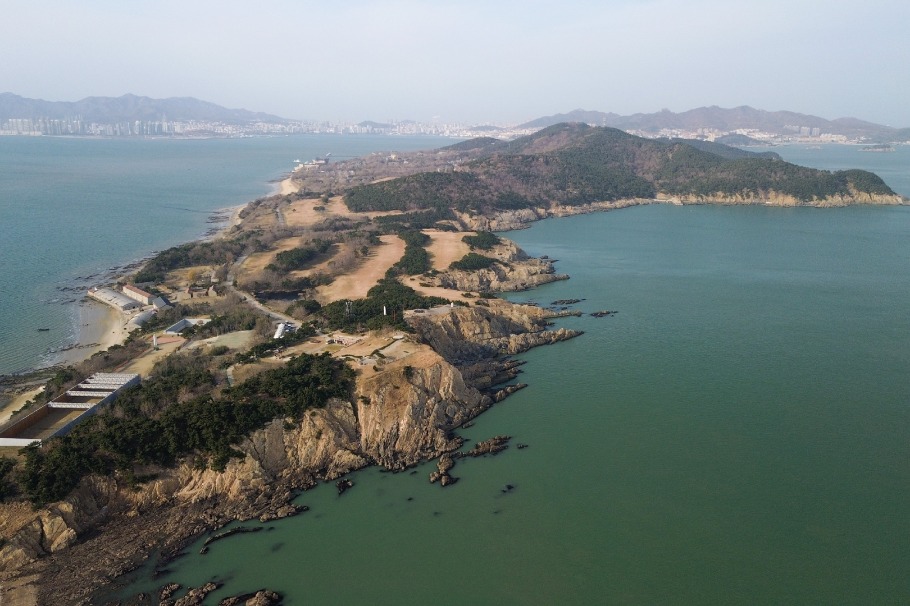Indonesia aims for green economy driven by electric vehicles






Electric vehicle manufacturing is emerging as one of the key sectors of the Indonesian economy, with the nation's government courting foreign investments and promoting green growth.
Indonesian President Joko Widodo met Elon Musk, co-founder and CEO of Tesla, in May to persuade the world's biggest EV maker to set up shop in Southeast Asia's largest economy.
Widodo, who currently chairs the G20-a grouping of the world's 20 major developed and developing economies-h(huán)as also invited Musk to attend a summit of the bloc that will be held on the resort island of Bali in November.
Tesla is just one of the several companies that Indonesia is eyeing in its bid to develop an EV industry. In March, Hyundai opened an EV manufacturing plant in West Javathe South Korean automaker's first factory in Southeast Asia.
Indonesia has imported 30 electric buses from China, and these are now used in the capital city of Jakarta.
Analysts said that Indonesia's huge nickel and copper reserves-among the world's biggest-make the country a competitive investment destination for EV manufacturers. Nickel and copper are needed to make lithium-ion batteries that power EVs.
Indonesia has also offered several incentives to encourage investment in EV manufacturing, including tax allowances and holidays, as well as tariff cuts for imported machinery and materials used in EV production.
The state-owned Indonesia Battery Corp was created in 2021 to oversee the development of the nation's battery manufacturing industry.
Easy access to the materials used in making batteries is the lifeline of an EV manufacturer, according to Fabby Tumiwa, executive director of the Institute for Essential Services Reform, a Jakarta-based think tank.
Tumiwa said EV manufacturers want to secure the source of materials needed to produce batteries and this is why it makes sense for EV companies to invest in Indonesia.
The Singapore-based DBS Bank said the Indonesian government views the EV manufacturing industry as "pivotal, with interests spanning across the value chain-(from) downstream commodity processing to enabling battery production and encouraging domestic EV adoption".
"This will help the economy not only harness its natural strengths, but also make progress on low-carbon energy transition," DBS said, pointing to Indonesia's climate commitment. The Indonesian government has set the target of reducing greenhouse gas emissions by 29 percent in 2030 and achieving zero carbon emission by 2060.
Apart from its resources and providing fiscal incentives, Indonesia also offers a huge consumer market for foreign EV investors.
"We have the market for EVs. Indonesia is an emerging economy with an aspirational middle-class," said Tumiwa from Jakarta-based think tank IESR.
Indonesia is the world's fourth most populous nation, home to more than 270 million people. It is classified as a lower middle-income country by the World Bank, with a gross national per capita income of $3,870.
Indonesia aims to produce 400,000 electric cars in 2025, with the figure reaching 5.7 million by 2035. To encourage local consumers to buy EVs, the country offers tax breaks and is building more charging stations.
DBS said in its report that Indonesia's goal of becoming an EV manufacturing hub will require policy support and efficient infrastructure, noting the country's decision to ban nickel exports and its plan to ban copper exports next year.
"Indonesia is expected to dominate the EV battery market by holding abundant resources within its country," DBS said.
But Indonesia's huge mineral resources could also be a source of other problems. While using EVs can help reduce emissions, the extraction of minerals needed to make batteries harms the environment and local communities, according to environmentalists.
Melky Nahar, head of campaigns at the Mining Advocacy Network, said that mining is "destructive" and has caused flooding in villages, and miners also suffer from poor working conditions.
Aulia Hakim, from the Indonesia Forum for the Environment, said people in mining communities are usually divided into two camps. The first includes those who support the mining industry as it creates more jobs in local communities, while the second is more concerned about the environmental damage caused by mining, including air pollution, the killing of fish and deforestation.
"This is a dilemma." People in the local community understand that mining is a useful source of employment, "but people also suffer from environmental damage", he added.





























